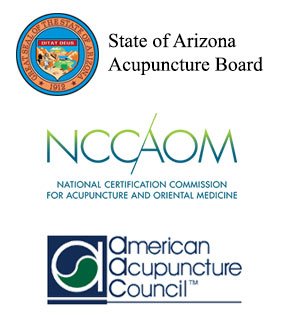Japanese Acupuncture, Phoenix, AZ
Medical Notes
Phoenix, April issue, 2012, by editorial
Bad Medicine: even after high-profile tragedies, a silent epidemic of prescription drug overprescription, abuse and overdose continues to plague Arizona.
“In 2010, more than 1,100 Arizonans died from prescription drug poisoning – surpassing the number that die annually in car crashes, according to ADHS…
Prescription drugs killed more than 20,000 people nationwide in 2008. Of those, nearly 15,000 deaths were caused by painkillers, more than cocaine and heroin combined.” “The drugs themselves hinder people’s ability to make smart decisions about the drugs. Xanax, for example, impairs judgment, memory and self-control, which can make people lose track of how many pills they’ve taken and forget they’re not supposed to take it with alcohol…Ambien is a short-term amnesiac, and they just don’t remember what they took.”
New York Times, March 20, 2012
A Drumbeat on Profit Takers: The former editors of The New England Journal speak in one voice against the ‘commercial exploitation of medicine.’ by Abigail Zuger, M.D.
Dr. Arnold Relman, an ex-editor of The New England Journal of Medicine says: “’It’s clear that if we go on practicing medicine the way we are now, we’re headed for disaster.’ Their joint crusade (with his wife, Dr. Marcia Angell) stated repeatedly in editorials for the journal and since expanded in books and dozens of articles in the lay press, is against for-profit medicine, especially its ancillary profit centers of commercial insurance and drug manufacture…’we should not allow the medical-industrial complex to distort our health care system to its own entrepreneurial ends,’ he wrote; medicine must ‘serve patients first and stockholders second.’…he deplored a ‘market-oriented health care system spinning out of control’ with commercial forces influencing doctors’ judgments and manipulating a credulous public.”
The New York Times, March 13, 2012
Pills’ Risks Complicated Long Wait For Sleep by Roni Caryn Rabin
“Patients taking prescription sleep aids on a regular basis were nearly five times as likely as non-users to die over a period of two and a half years, according to a recent study (published in online journal of BMJ Group)…Some experts were quick to point out the study’s shortcomings…Still, the findings underscore concern about the exploding use of sleeping pills. Experts say that many patients, especially the elderly, should exercise more caution with sleep medications, including the non-bezodiazepine hypnotics so popular today, like zolpidem (Ambien), eszopiclone (Lunesta) and zaleplon (Sonata)…many people take them for years, even though most are approved only for short-term use and generally their safety and effectiveness have not been evaluated beyond several weeks or six months at the most in clinical trials…Some data suggest that the medications do not even do what they promise all that well….Data from the largest trial reviewed by the FDA when it approved Sonata found the drug did not extend sleeping time…Even setting aside the controversial new study, the risks of popular sedative hypnotics can be significant. They can trigger severe allergic reactions in rare cases and may increase breathing problems; they can worsen depression, often a cause of sleeplessness…They can contribute to confusion that affects judgment and behavior and have been implicated in falls that can be fatal for older adults…also have reported engaging in complex and bizarre behaviors while they are in a half-awake, half-asleep state…Drug company officials say the sedative hypnotics have been shown to be both safe and effective, though like other prescription sleeping pills, they may carry some risks…A 2007 study in Norway of nearly 15, 000 people found men were 1.5 times as likely to die and women 1.7 times as likely to die if they used sleeping pill. A 2010 Canadian study of more than 14, 000 people found users were 1.36 times as likely to die as non-users…So what is an insomniac to do? Nothing rash. Quitting sleeping pills abruptly can result in serious withdrawal symptoms and agitation, not to mention sleepless nights. Patients must taper off the medication over many weeks, experts say…Practice good ‘sleep hygiene’ – habits that are conductive to sleeping well. Have a bedtime and adopt a pre-sleep ritual, like reading. Do not nap during the day. Do not watch TV or use the computer before going to sleep. Avoid exercise, nicotine, alcohol, caffeine and spicy food for several hours before going to sleep. Block out light and noise from the bedroom…Some studies suggest that cognitive behavioral therapy…”
The New York Times, March 13, 2012
More Red Meat, More Mortality by Nicholas Bakalar
Eating red meats is associated with a sharply increased risk of death from cancer and heart disease, according to a new study, and the more of it you eat, the greater the risk. The analysis, published online Monday in Archives of Internal Medicine, used data from two studies that involved 121,342 men and women who filled out questionnaires about health and diet fro 1980 through 2006. There were 23,926 deaths in the group, including 5, 910 from cardiovascular disease and 9,464 from cancer…The increased risks linked to processed meat, like bacon, were even greater: 20% over all, 21% for cardiovascular disease and 16% for cancer…Previous studies have linked red meat consumption and mortality, but the new results suggest a surprisingly strong link…’When you have these numbers in front of you, it’s pretty staggering,’ said the study’s lead author, Dr. Frank B. Hu, a professor of medicine at Harvard.”
The New York Times, March 13, 2012
Vitamin D Means Fewer Fractures for Girls by Nicholas Bakalar
Higher amounts of vitamin D in the diet are associated with a lower risk for bone fractures in teenage girls, a new study has found…the investigators found that the girls in the group (6,712 girls from age 6 to 15 over 7 year-period) with the highest 20% of vitamin D intake were 52% less likely to have a stress fracture than those in the group with the lowest 20%…’We can’t say conclusively that intake of vitamin D is going to prevent stress fractures,’ said the study’s lead author, Kendrin R. Sonneville, a research scientist at Children’s Hospital Boston. ‘This is an observational study only. But it can’t hurt, and it might help’…”
The New York Times, March 13, 2012
Reasons That Vitamin D May Matter by Jane E. Brody
“..the Endocrine Society recommends that people at risk for vitamin D deficiency be screened to determine their serum levels, including those with bone disease, chronic kidney disease, liver failure, malabsorption syndromes (resulting from cystic fibrosis, IBS, weight-reduction surgery or abdominal radiation), overactive parathyroid and granuloma-forming disorders. People taking drugs like anticonvulsants, glucocorticoids, antiretrovirals, antifungals and cholestyramine also should be tested, as well as older adults with a history of falls or nontraumatic fracture.”
The New York Times, February 28, 2012
A Cocktail Of Drugs May Cloud The Brain by Roni Caryn Rabin
“Many people unaware that dozens of painkillers, antihistamines and psychiatric medications – from drugstore staples to popular antidepressants – can adversely affect brain function, mostly in the elderly…Called anticholinergics, the drugs block the action of neurotransmitter acetylcholine, sometimes as a direct action, but often as a side effect…The difficulty for patients is that the effect of anticholinergic drugs is cumulative. Doctor are not always aware of all of the medications their patients take, and they do not always think to review the anticholinergic properties of the ones they prescribe…After following more than 13,000 British men and women 65 or older for two years, researchers found that those taking more than one anticholinergic drug scored lower on test of cognitive function than those who were not using any such drugs, and that the death rate for the heavy users during the course of the study was 68% higher…That finding, reported last July in The Journal of the American Geriatrics Society, stuned the investigators…there is already a consensus in the scientific community that anticholinergic compounds should be prescribed with caution, especially for the elderly…The heart drug digoxin, the blood thinner warfarin, the painkiller codeine and prednisone are considered mild anticholinergics. Those with most severe effects include Paxil, Benardryl, a drug for overactive bladder called oxybutynin, and the schizophrenia drug clozapine…Keep in mind that many over-the-counterdrugs, including allergy medications, antihistamines and Tylenol PM, have anticholinergic effects. ‘Don’t’ overreact to your cold,’ Dr. Boustani advised. ‘Try Grandma’s remedy for a couple of days before you ramp up to Advil PM or Aleve PM. For people with an overactive bladder, he suggested, ‘try scheduled toileting or bladder exercises before jumping to medicine.’”
The New York Times, March 20, 2012
Doctor’s Weight Affects Obesity Diagnoses by Nicholas Bakalar
“Overweight doctors may be less likely than other physicians to discuss diet and exercise with patients, and less likely to make a diagnosis of obesity…Doctors more frequently made a diagnosis of obesity when a patient’s weight was higher than their own, and overweight doctors were less likely to believe a patient would follow diet advice. Only 37% of overweight doctors strongly believed that they were competent even to offer advice about eating and exercise, compared with 53% of normal-weight physicians.”
The New York Times, February 28, 2012
Brainpower Tied to Omega-3 Levels by Nicholas Bakalar
Low blood levels of omega-3 fatty acids are associated with smaller brain volume and poorer performance on tests of mental acuity, even in people without apparent dementia, according to a new study…In the analysis, published online Monday in the journal Neurology,…’We feel that omega-3’s reduce vascular pathology and thus reduce the rate of brain aging,’ said Dr. Zaldy S. Tan, the lead author and associate professor of medicine at the Univ. of California, Los Angeles…Several of the authors have financial relationships with pharmaceutical companies.”
Copyright: Japanese Acupuncture 2016





